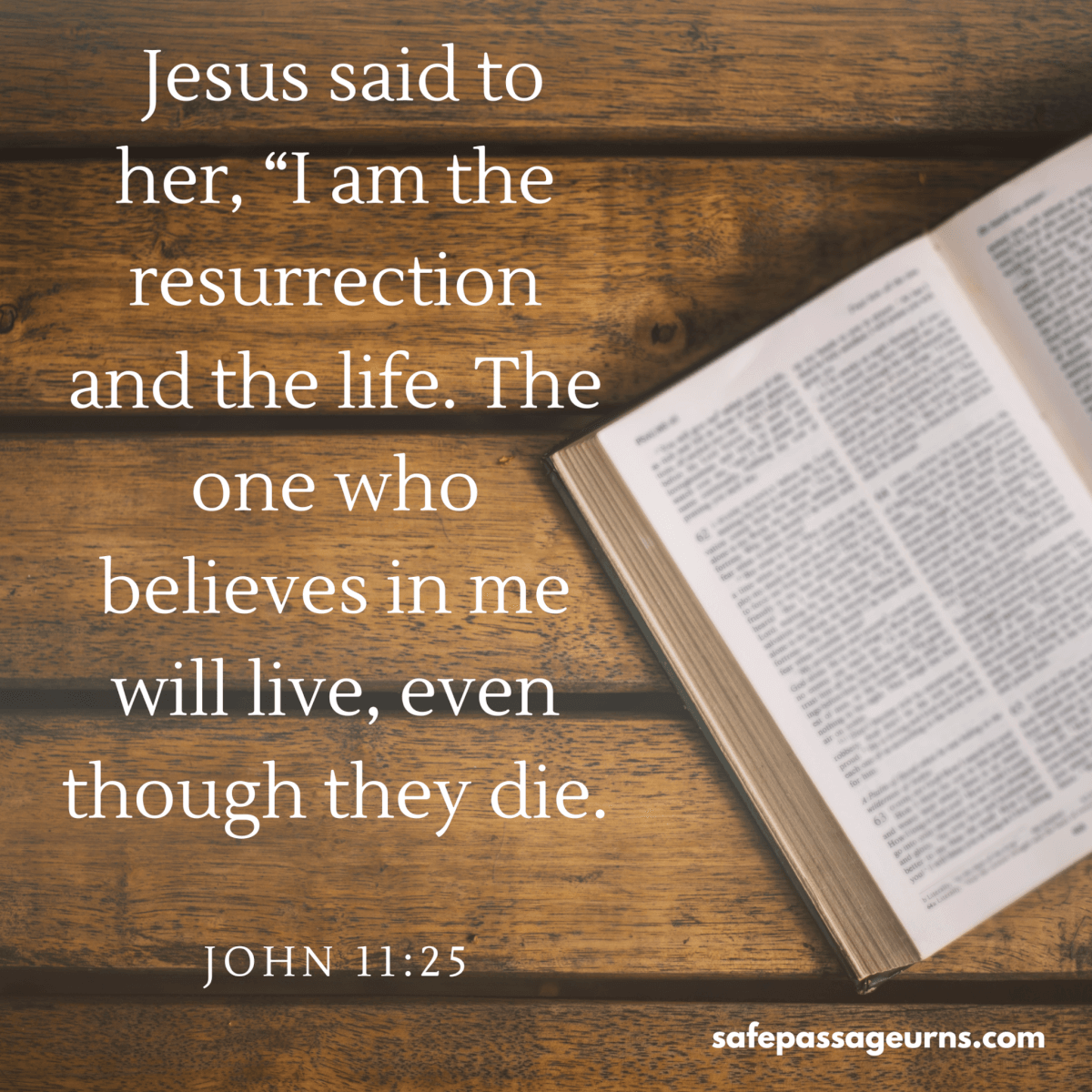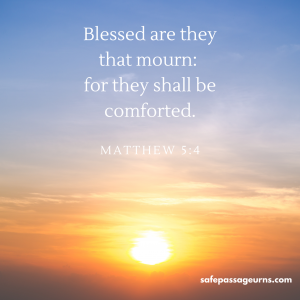Have you ever wondered what happens at a Jehovah’s Witness funeral? They are held at Kingdom Halls, funeral homes, private homes, crematories, and gravesides. Similar to other religions, Jehovah’s Witnesses have a time of prayer, scripture reading, singing, and a few words about the dead’s faithfulness. People of all faiths are welcome to attend.
Jehovah’s Witness Funeral Customs & Beliefs
Jehovah’s Witnesses base their funeral customs and beliefs about death on Bible scriptures. Members believe that death is a permanent state of non-existence but that God offers resurrection. So when God abolishes sin, He will spiritually resurrect the most faithful followers. This gives believers comfort in knowing they can see their loved ones again.
Jehovah’s Witness Funeral Customs
Modest funerals are appropriate for Jehovah’s Witnesses. Proverbs 11:2 reminds believers that pride comes before the fall, so the faithful opt for respectful, non-showy funerals and memorials.
Lavish funerals designed to show wealth are not preferred. They do not care for overly expensive caskets or wardrobes to impress others. But instead, Jehovah’s Witnesses opt for understated funerals focused on comforting the bereaved.

Funeral services are short (15-30 minutes) and focus on what the Bible says about death and the resurrection. Next, the good qualities of the person who died are called to mind, especially encouraging stories of their faithful example. Finally, the congregation might sing a scripture-based song, and the short service ends in prayer.
Members of all faith backgrounds are encouraged to attend funerals for Jehovah’s Witnesses. These brief services focus on simplicity and are open to all.
Jehovah’s Witness Beliefs On Death
Jehovah’s Witnesses have several beliefs on death that are similar to some beliefs of other Christian religions.
- Grieving for the dead is a normal and Biblically-sound state of being. Jehovah’s Witnesses take comfort from scripture where Jesus’ disciples mourned for their loved ones. John 11: 33-35 are some of the verses they point to in the grieving process.
- The dead are unconscious. Jehovah’s Witnesses believe that death means there is no suffering, so they feel the comfort that their loved one is in a state like sleep. (Ecclesiastes 9:5; John 11:11) Jehovah’s Witnesses believe that the soul is a mortal being, just like the body. And one day, death occurs for both. They believe that the Christian teaching about souls being immortal comes from Greek philosophy rather than the Bible.
- There is hope for the dead. The belief that resurrections will occur and death will be no more give faithful members hope. This hope helps Jehovah’s Witnesses avoid extreme mourning practices. (Acts 24:15; Revelation 21:4) In addition, the faithful do not believe in an eternal hell. Rather they pose that the New Testament word “hell” stems from the Old Testament word “Sheol” or “grave.” Therefore everyone goes to the grave upon death, even the good and faithful.

Do Jehovah Witnesses Believe In Cremation?
Yes, Jehovah’s Witnesses believe in and approve of cremation. This is because they believe that the spiritual body is resurrected rather than the physical body. So there are no prohibitions against cremation.
While more Biblical references mention burial, cremation is not prohibited in scripture. The Jehovah’s Witness’s Watchtower Study Edition from June 2014 says, “Whether a dead person is cremated or not, Jehovah is not limited in his ability to restore the person to life with a new body.”
It further states, “Our hope in the resurrection rests, not on what might be done with the physical corpse, but on faith in God’s ability and desire to fulfill his promises.”
Can Jehovah’s Witnesses Be Embalmed?
Jehovah’s Witnesses can be embalmed. Embalming is highly encouraged for open caskets so mourners can view the body. In addition, it helps with disinfection, restoration, and preservation. So while embalming may not be specifically required by law, it is a good idea for viewing purposes.
What To Wear To A Jehovah Witness Funeral
It is appropriate to wear dark and modest clothing to a Jehovah Witness funeral. However, just as the funeral should show modesty, so should clothing.
When attending any funeral, the important thing to remember is that the service is not about you. Showy or flashy clothing belongs in a club, not a funeral home. A good rule of thumb for funeral attire is if you can wear the outfit to an office or church, it is likely appropriate for a funeral.
Women can never go wrong with black, dark gray, or navy dresses or pantsuits. Likewise, men look well put together in dark suits with white shirts and dark ties.
Keep the attention on the deceased and the grieving family by dressing modestly.
Related: Can You Wear White to a Funeral?
Jehovah’s Witness Funeral Flowers
In keeping with Jehovah’s Witnesses’ bias towards modesty, large and lavish flower arrangements are frowned upon. Instead, keep the flowers simple yet elegant.
Don’t send large and extravagant flower arrangements to a Jehovah’s Witness funeral. Also, avoid flowers meant to stand on an easel or drape over the casket. But instead, choose simple bouquets or plants that you send directly to the family.
Refrain from any type of arrangement with symbolism, since Jehovah’s Witnesses do not use religious symbols. These symbols are often tied to holidays, which Jehovah’s Witnesses do not celebrate. In addition, due to the pagan origins of many Christian beliefs, Witnesses refrain from using the symbolism of crosses or other icons.
Give flowers as an expression of sympathy or to add peaceful beauty to a funeral.
What To Say To A Jehovah Witness When Someone Dies
What you say to a Jehovah’s Witness when someone dies is the same thing you say to anyone else. Instead, try a simple “I’m very sorry for your loss and I’m here for you.”
When someone dies, the worst thing you can do is say nothing. I understand you may not know what to say, so you’d rather remain silent than saying something wrong. You don’t need to give an elegant speech. But simply acknowledge the pain.
Share a special memory you have with the deceased. Stories about their loved ones help mourners process grief. Of course, no two people experience grief in the same way. But it helps to know that others care.
Related: What To Say When Someone Says Sorry For Your Loss
Jehovah Witness Funeral Program
Jehovah’s Witness funerals are short affairs focusing on the Bible’s view of resurrection. The speaker may mention examples of the deceased’s faith. But very little about the dead’s life is discussed. Instead of a eulogy, exemplary qualities of their life may be called to mind.
If a small handout about the deceased is given, it should not contain any religious or pagan symbolism. Instead, a simple statement about the deceased’s faithfulness will suffice.
Jehovah’s Witness Funeral Songs
They may sing a song based on the Scriptures at the end of the service. However, traditional funeral songs are not part of the program. Instead, the funeral focuses on beliefs about resurrection and living a Christian life. It does not focus on trends or customs of other religions or societal norms.

Did Prince Have A Jehovah’s Witness Funeral?
The music icon and legend Prince was honored in a private service at the Jehovah’s Witness Kingdom Hall in Minnetonka, Minnesota. Prince frequently practiced his faith in this Hall after converting to the religion in 2003. While there, he was simply known as Brother Nelson.
Conclusion
Jehovah’s Witnesses have strong beliefs about how to show respect to the dead without specifically honoring the person. Instead, funerals focus on what the Bible says about death and the hope of resurrection.
The short 15 to 30-minute service focuses less on the deceased person and more on faithfulness to Jehovah. They teach that death is the penalty for sin and that hell does not exist as a fiery place of punishment. Instead, Jehovah’s Witnesses say that the notion of hell goes against God’s loving nature.
Instead, when a believer’s body dies, so does their soul. The individual simply ceases to exist. However, two different events will occur, giving believers the chance to experience resurrection.
- The first “annointed” 144,000 faithful believers will be raised when Christ returns. Jehovah’s Witnesses believe that Jesus returned invisibly in 1914, and this resurrection is currently happening. Those resurrected will go to reign with God in heaven.
- The second event happens when the remainder of believers or the “great cloud of witnesses” are raised to an eternal earthly paradise with Jesus.
Because of the belief that Jehovah’s Witnesses adhere to Biblical scripture rather than to social norms or customs, funerals stick to the hope of resurrection. Therefore, flowers and funeral attire are limited to basic choices and colors. Modesty is the key.
Even mourning practices are limited, so that the focus remains on scripture rather than on dress codes. For example, dark clothes are appropriate for funerals. However, extended mourning attire, such as the late Queen Victoria wore, has no place in Jehovah’s Witness’s grieving.



